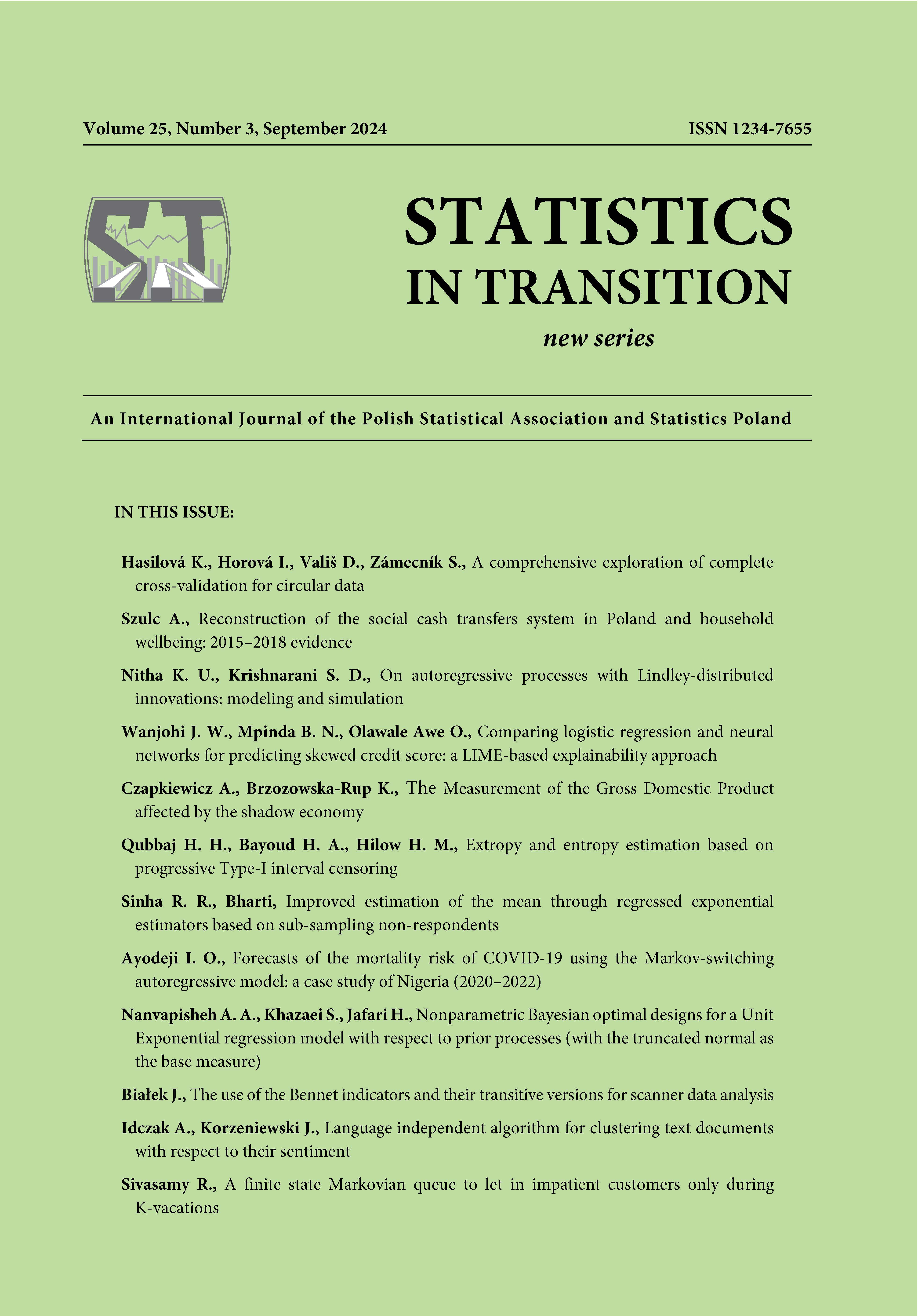ARTICLE
ABSTRACT
This study examines the impact of changes in the social benefits system on the wellbeing, poverty, and economic activity in Poland. The core element of those changes was a programme of large cash transfers, referred to as Family 500+, introduced in 2016. It was intended to support families with children, especially the least affluent ones, and to foster fertility. The impact of the transfers has been examined through the observation of changes in the monetary and multidimensional wellbeing of households. The study also analysed the changes in recipients’ economic activity using estimates of regression models and treatment effects. The Family 500+ programme proved to be successful as an anti-poverty tool and also resulted in the increase in the average wellbeing for the whole population. However, its side-effects included the fall in the economic activity of some recipients, especially in 2016 and 2017. The above trends partly reversed in 2018. As some income data in the lower parts of the distribution seemed to be flawed, income imputations, based on regression on income correlates, were applied in the study.
KEYWORDS
family benefits, monetary and multidimensional poverty, income imputation.
REFERENCES
Abadie, A., Imbens, G. W., (2009). Matching on the estimated propensity score. Working Paper 15301. Harvard University and National Bureau of Economic Research, Cambridge, Massachusetts, http://www.nber.org/papers/w15301.
Brzeziński, M., Najsztub, M., (2017). The impact of “Family 500+ programme on household incomes, poverty and inequality. Polityka Społeczna, Vol. 44, pp. 16–25.
Cattaneo, M. D., Drukker, D. M., Holland, A. D., (2013). Estimation of multivalued treatment effects under conditional independence. Stata Journal, Vol. 13, pp. 407–450.
Cheli, B., Lemmi, A., (1995). A “Totally” Fuzzy and Relative Approach to the Multidimensional Analysis of Poverty. Economic Notes, Vol. 24, pp. 115–134.
Główny Urząd Statystyczny - Statistics Poland, (2018). Budżety gospodarstw domowych - Household Budget Survey, Warsaw.
Harumová, A., (2016). Inclusive Labor Markets as a Solution of Long Term Unemployment in Slovakia. Mediterranean Journal of Social Sciences, Vol. 7, pp. 194–200.
Heckman, J., (1976). The common structure of statistical models of truncation, sample selection and limited dependent variables and a simple estimator for such models; in: Annals of Economic and Social Measurement, Vol. 5 (4), pp. 475–492.
Institute of Labour and Social Affairs, (2020). Minimum socjalne i minimum egzystencji, Minimum socjalne i minimum egzystencji | IPiSS.
Kotlikoff, L. J., Marx, B., Rizza, P., (2006). Americans' Dependency on Social Security, Working Paper 12696, National Bureau of Economic Research, Cambridge, Massachusetts, http://www.nber.org/papers/w12696.
Magda, I.; Kiełczewska, A., Brandt, N., (2018). The "Family 500+" child allowance and female labour supply in Poland, OECD Economics Department Working Papers, No. 1481, OECD Publishing, Paris, https://ibs.org.pl/en/publications/the-family-500-child-allowance-and-female-labour-supply-in-poland/.
Milovanska-Farrington, S., (2021). The Effect of Child Benefits on Financial Difficulties and Spending Habits: Evidence from Poland’s Family 500+ Program, IZA DP No. 14274, IZA – Institute of Labor Economics, https://docs.iza.org/dp14274.pdf.
Ministerstwo Rodziny I Polityki Społecznej, (2021). Rodzina 500 plus, https://www.gov.pl/web/rodzina/rodzina-500-plus.
Premik, F., (2022). Evaluating Poland’s Family 500+ Child Support Programme, Gospodarka Narodowa. The Polish Journal of Economics, Vol. 310, pp. 1–19.
Ravallion, M., (2009). Miss-targeted or miss-measured?, Economics Letters, Vol. 100, pp. 9–12.
Ravallion, M., Van De Walle, D., Gautam, M., (1995). Testing a Social Safety Net. Journal of Public Economics, Vol. 57, pp. 175–199.
Rubin, D. B., (1987). Multiple Imputation for Nonresponse in Surveys. New York: Wiley.
Shepherd, A., Wadugodapitiya, D., Evans, A., (2011). Social Assistance and the 'Dependency Syndrome'. Chronic Poverty Research Centre Policy Brief, No. 22, https://ssrn.com/abstract=1765933.
